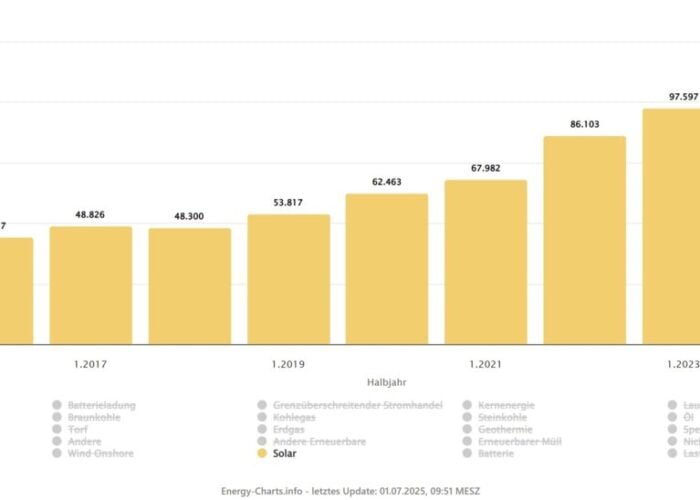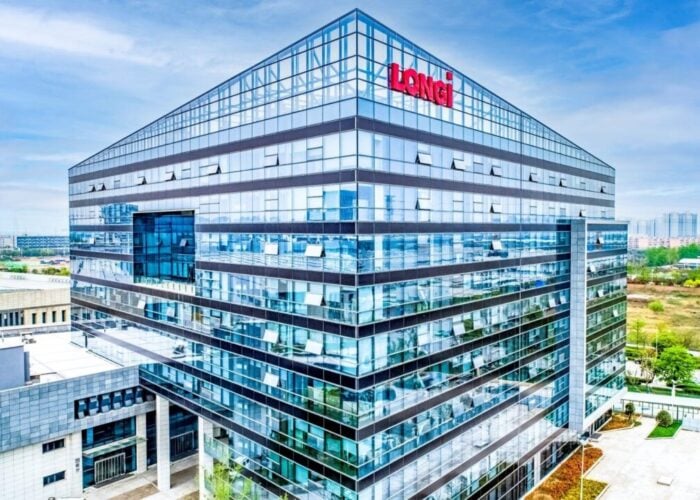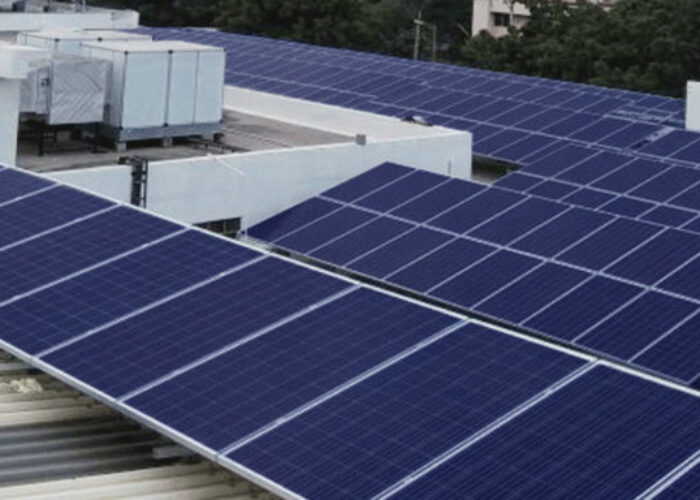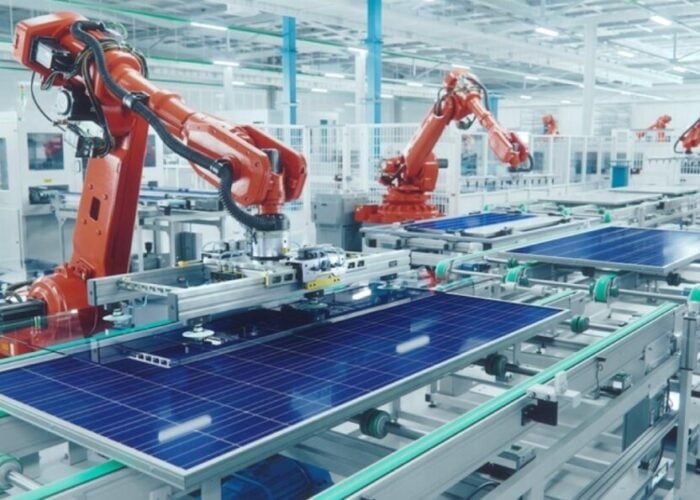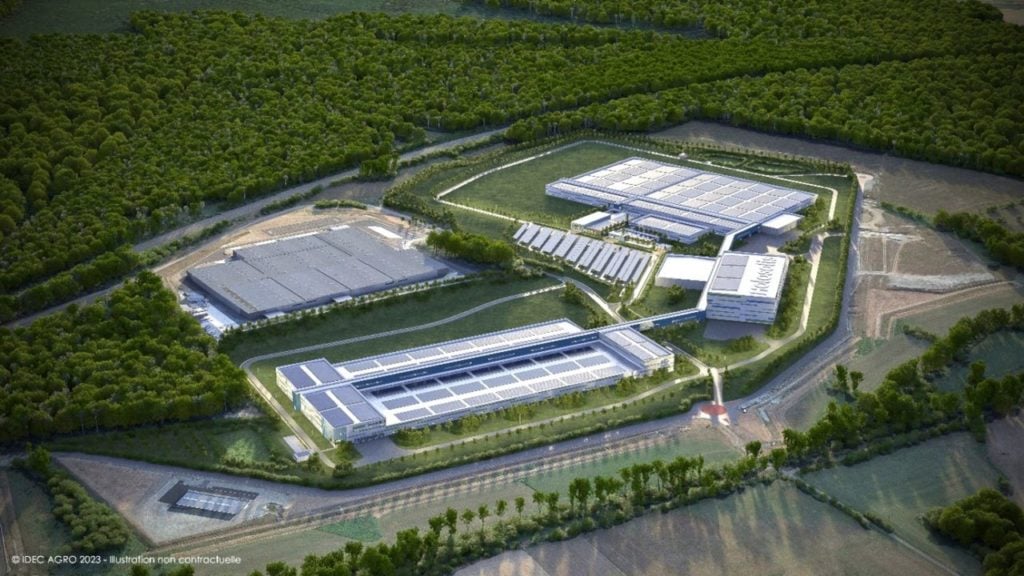
Europe is looking to increase its domestic renewables manufacturing capacity. In late November, the European Parliament voted to accept the Net Zero Industry Act (NZIA), hoping to onshore manufacturing for renewable energy technologies such as solar PV, battery energy storage and wind to the EU.
The aim of the NZIA, proposed by the European Commission (EC) in March, is to enable Europe to meet 40% of its clean energy deployment needs with domestically manufactured products. The final amendments to the act even broaden its scope to cover the “entire supply chain, including components, materials, and machinery for producing net zero technologies.”
Unlock unlimited access for 12 whole months of distinctive global analysis
Photovoltaics International is now included.
- Regular insight and analysis of the industry’s biggest developments
- In-depth interviews with the industry’s leading figures
- Unlimited digital access to the PV Tech Power journal catalogue
- Unlimited digital access to the Photovoltaics International journal catalogue
- Access to more than 1,000 technical papers
- Discounts on Solar Media’s portfolio of events, in-person and virtual
Coinciding with the NZIA, French startup Holosolis announced plans to build a 5GW solar module assembly plant in Sarreguemines, a city close to the border between France and Germany, earlier this year.
Holosolis is co-founded by innovation group EIT InnoEnergy, real estate company IDEC Group – which specialises in the rooftop market – and French solar developer TSE. The collaboration aims to build cost-effective and efficient PV modules in Europe based on tunnel oxide passivated contact (TOPCon) solar cells.
The company says commercial production is expected to start in 2025 with full capacity to be reached in 2027.
Modules produced at the plant will be focused on three markets: rooftop residential, commercial and industrial rooftop and agriPV. Jan Jacob Boom-Wichers, CEO of Holosolis, added that the company would also apply their products to factory rooftops, carports, and farm barns.
Speaking of the new manufacturing plant, Boom-Wichers says that the company is “in the middle of the permitting phase”.
“The first of three permits has been obtained, and we can now apply for the building and environmental permits. Construction is currently planned. It will start at the end of 2024,” he says.
After the announcement, the company started working with different companies to set up its production line in France.
For example, it inked a strategic collaboration agreement with German research organisation Fraunhofer ISE in August, with the latter helping set up its PV production line, select the technology and plan the factory at the concept design and construction phases.
Boom-Wichers does not unveil more details about the collaboration between Fraunhofer ISE and Holosolis, but believes that Fraunhofer ISE can provide the company with “invaluable expertise to build the most efficient modules”.
“Fraunhofer ISE is one of the most experienced solar institutes in Europe with leading expertise on TOPCon technology. Our research and development (R&D) department and theirs are cooperating very closely on tech improvements,” Boom-Wichers says.
Aside from the collaboration with Fraunhofer ISE, French chemical manufacturer Armor Group acquired a 20% stake in Holosolis in November. Armor Group claims that its expertise in thin-film technology can help accelerate the development of perovskite-silicon tandem solar cells. The group’s experience in the French, German and wider European markets can also support Holosolis’ commercial development.
Solar manufacturing in Europe
This year, solar manufacturers in Europe have been facing strong competition from Chinese module manufacturers, as they produced what some have described as “unsustainably low-priced PV modules”.
Moreover, over 40GW of Chinese-made solar modules were in storage across Europe this year, with a cumulative value of around €7 billion (US$7.8 billion), according to data from research firm Rystad Energy.
Some solar manufacturers in different parts of the supply chain even stopped production, such as Norwegian solar ingot manufacturer NorSun’s announcement of a production halt. Solar module manufacturer REC Group also ceased operations at its polysilicon production facility in Norway.
Johan Lindahl, secretary general of the European Solar Manufacturing Council (ESMC), even said the outlook for the upper segment of the PV manufacturing value chain in Europe was becoming grim.
Boom-Wichers agrees that module prices in China are currently “very low” due to oversupply, but he is still optimistic about Holosolis’ business.
He says: “HoloSolis is fully aligned with the EU objective indicated in the NZIA that 40% of modules installed in Europe must be manufactured on the continent. This will be done via special auctions for public and general procurement.”
When it comes to Holosolis’ products, Boom-Wichers adds that they will be competitive as the products will be low-carbon and made in Europe.
“Our n-type TOPCon modules are of high technological quality too,” he says.
When it comes to other technologies, Holosolis is developing two-terminal (2T) perovskite on silicon tandem solar cells via a joint venture with research firm IFPV, a company specialised in perovskite-based thin film technology.
Boom-Wichers says the technology can improve the stability and strength of the perovskite in a stack of thin layers.
“We hope to build these with an efficiency of 28% and above,” he concludes.

